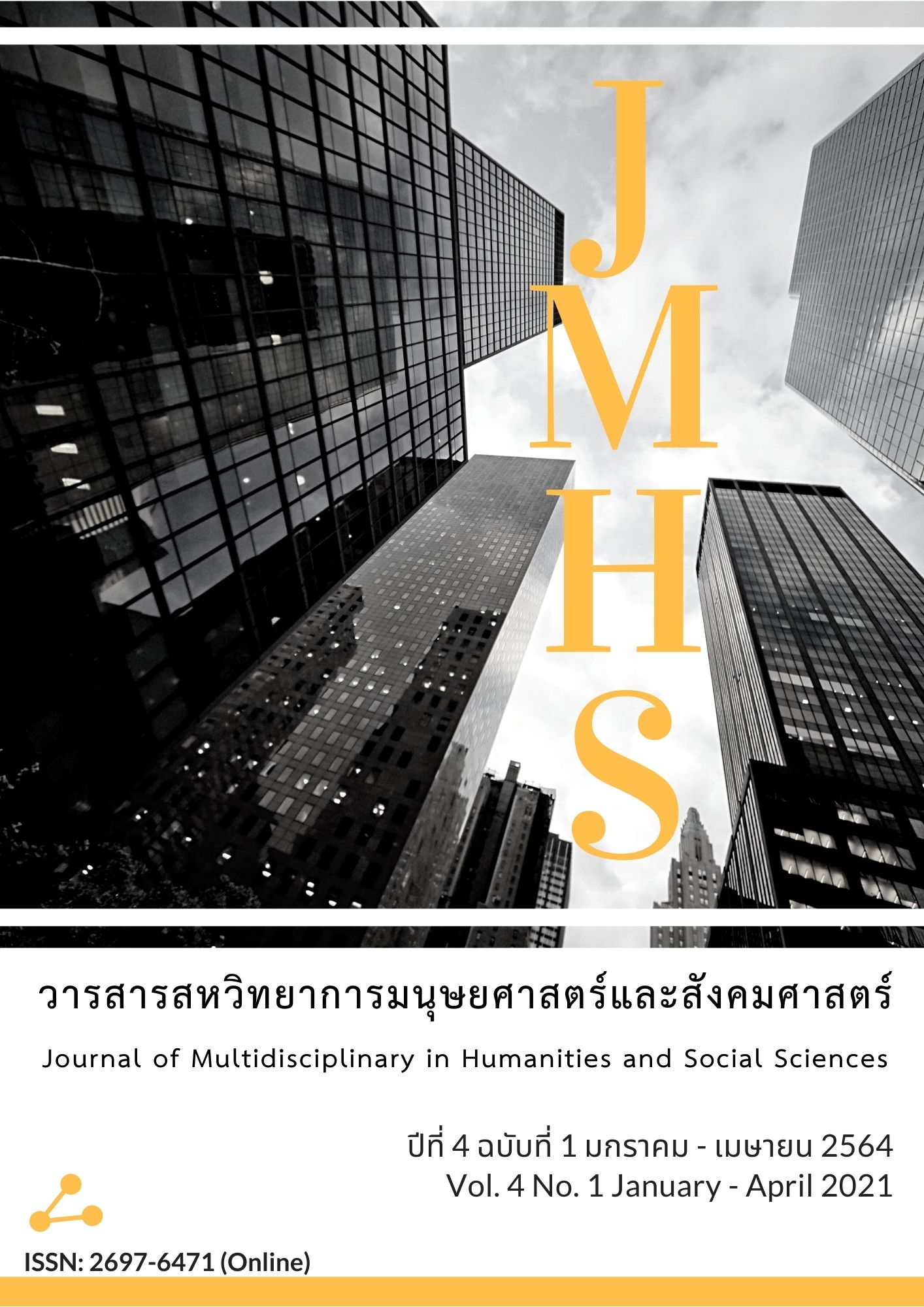อิสลามบำบัดสำหรับผู้ติดสารเสพติด
Main Article Content
บทคัดย่อ
บทความนี้มีวัตถุประสงค์ 1) เพื่อศึกษาอิสลามบำบัดสำหรับผู้ติดสารเสพติดว่าเป็นอย่างไร และ 2) เพื่อศึกษาปัจจัยที่เป็นประโยชน์ของอิสลามบำบัดต่อผู้ติดสารเสพติด รูปแบบการวิจัยเป็นการวิจัยเชิงคุณภาพ กลุ่มตัวอย่างจำนวน 14 ราย แบ่งเป็นผู้ติดสารเสพติดที่ผ่านการบำบัดแบบอิสลามบำบัดจำนวน 10 ราย พี่เลี้ยงที่ปฏิบัติงานบำบัดจำนวน 2 ราย ครูใหญ่ของโรงเรียน 1 ราย และ ผู้ดูแลโครงการจำนวน 1 ราย ใช้วิธีคัดเลือกแบบเจาะจง เครื่องมือที่ใช้ในการวิจัยคือแบบสัมภาษณ์เชิงลึก วิเคราะห์ข้อมูลโดยใช้การวิเคราะห์เนื้อหาในการบรรยายเชิงพรรณนา ผลการวิจัยพบว่า
1. อิสลามบำบัดมีแนวคิดสำคัญคือ 1) เน้นการสร้างความศรัทธาในศาสนาและไม่มุ่งเน้นการบำบัดสารเสพติด 2) หลักการในอิสลามเป็นความจริงอันสมบูรณ์แบบที่สามารถแก้ไขทุกปัญหาได้ 3) ศาสนกิจช่วยให้ลืมยาเสพติด และ 4) ความสำเร็จของการเลิกติดสารเสพติดมาจากอัลลอฮ
2. อิสลามบำบัดสร้างความเปลี่ยนแปลงซึ่งเป็นประโยชน์ต่อภาวะ การติดสารเสพติด 3 ประเด็น ดังนี้ 1) ความเปลี่ยนแปลงที่เกี่ยวข้องกับศาสนา ได้แก่ การเกิดการระลึกถึงพระเจ้ามากขึ้น การเกิดประสบการณ์พิเศษขึ้นจากการละหมาด การถือศีลอด การเรียนรู้เกี่ยวกับศาสนาอิสลาม และการอยู่ในสังคมศาสนาอิสลาม 2) ความเปลี่ยนแปลงที่เกี่ยวข้องกับตนเอง ได้แก่ การเชื่อมั่นในตนเองที่เป็นคนดีขึ้น การมีมุมมองและการจัดการกับความทุกข์เปลี่ยนแปลงไป และการมีเป้าหมาย แรงจูงใจ หรือสิ่งที่อยากทำ 3) ความเปลี่ยนแปลงที่เกี่ยวข้องกับครอบครัว ได้แก่ การรับรู้ความรู้สึกของพ่อแม่หรือความสงสารพ่อแม่ การรับรู้ความรักจากพ่อแม่ และความรับผิดชอบต่อภาระหน้าที่ในครอบครัวของตนเอง 4) ความเปลี่ยนแปลงที่เกี่ยวข้องกับสิ่งแวดล้อมภายในอิสลามบำบัด ได้แก่ การได้รับคำแนะนำ กำลังใจ การตักเตือน จากพี่เลี้ยง เพื่อนร่วมปอเนาะ และผู้ดูแลโครงการ
จากงานวิจัยนี้ อิสลามบำบัดมีแนวคิดสำคัญที่เน้นความศรัทธาและการเชื่อมั่นในพระเจ้าผ่าน การปฏิบัติศาสนกิจในการช่วยเหลือผู้ติดสารเสพติด และมีปัจจัยหลายประการที่เป็นประโยชน์กับผู้ติดสารเสพติดทั้งปัจจัยศาสนา การเปลี่ยนแปลงภายในตนเอง ครอบครัว และสิ่งแวดล้อมภายในอิสลามบำบัด
Article Details
ทัศนะและความคิดเห็นที่ปรากฏในวารสาร ถือเป็นความรับผิดชอบของผู้เขียนบทความนั้น และไม่ถือเป็นทัศนะและความรับผิดชอบของกองบรรณาธิการ
เอกสารอ้างอิง
คณะกรรมการบริหารเครือข่ายองค์วิชาการสารเสพติด สำนักงานคณะกรรมการป้องกันและปราบปรามยาเสพติด กระทรวงยุติธรรม. (2556). สังเคราะห์สถานการณ์ยาเสพติด พ.ศ. 2545-2555. กรุงเทพฯ: จรัลสนิทวงศ์การพิมพ์.
บุญเรือง ไตรเรืองวรวัฒน์. (2544). สถานการณ์ยาเสพติดของประเทศและแนวทางการแก้ไขปัญหา. ใน วิโรจน์ วีระชัย และคณะ (บรรณาธิการ). ตำราการบำบัดรักษาผู้ติดยาเสพติด. กรุงเทพฯ: วัชระอินทร์ปริ้นติ้ง จำกัด.
ปิยวรรณ ทัศนาญชลี. (2554). กระบวนการไม่เสพยาบ้าซ้ำ: กรณีศึกษาผู้ผ่านการบำบัดฟื้นฟูสมรรถภาพผู้ติดยาเสพติดในระบบบังคับบำบัด. วารสารสหศาสตร์ศรีปทุม ชลบุรี, 1(3), 36-48.
เพ็ญนภา กุลกานต์สวัสดิ์. (2555). การตระหนักรู้ในตนเองและกลวิธีการเผชิญปัญหากับปัจจัยที่เกี่ยวข้องในผู้ป่วยที่เข้ารับการบำบัดสารเสพติด (วิทยาศาสตรมหาบัณฑิต). คณะแพทยศาสตร์, จุฬาลงกรณ์มหาวิทยาลัย.
วิโรจน์ วีรชัย. (2548). ตำราเวชศาสตร์การเสพติด. กรุงเทพฯ: สำนักงานกิจการโรงพิมพ์องค์การสงเคราะห์ทหารผ่านศึก.
สำนักงานพัฒนาระบบข้อมูลข่าวสุขภาพ. (2561). การแพร่ระบาดของปัญหายาเสพติดในรอบ 10 ปี. สืบค้นเมื่อ 10 มกราคม 2561, จาก http://www.hiso/tonkit/tonkits_18.php.
Edmiston, S. R., & Robinson, S. C. (2016). Factors that contribute to successful long term alcohol and drug recovery. California State University, Sacramento State.
Henry, H. M. (2015). Spiritual energy of islamic prayers as a catalyst for psychotherapy. Journal of Religion and Health, 54(2), 387-398. doi: 10.1007/s10943-013-9780-4.
Khalid, M. Y. (2008). Psycho-spiritual therapy approach for drug addiction rehabilitation. Malaysian Anti-Drugs Journal (Journal Antidadah Malaysia), 3&4, 143-151.
Rahman, F. N. (2014). Spiritual Healing and Sufi Practices. Journal of Sufism and Spirituality, 2(1), 1-9.


